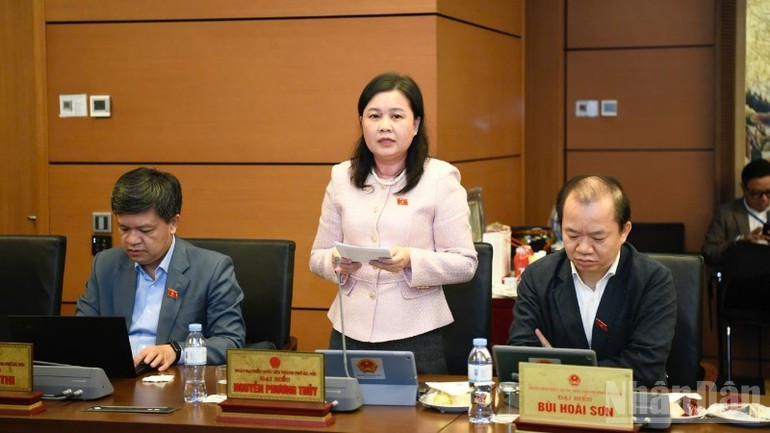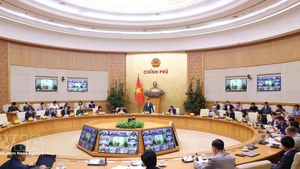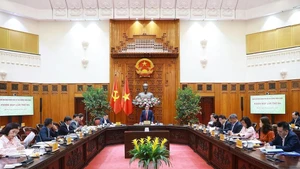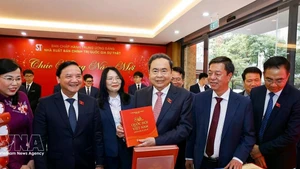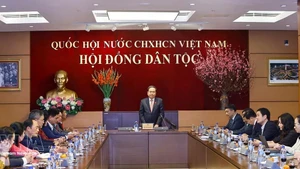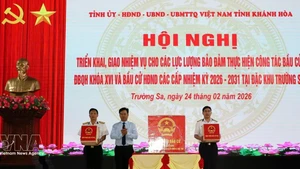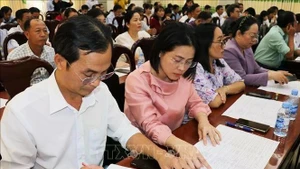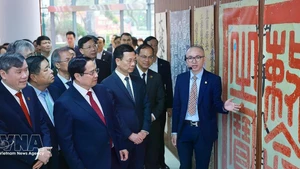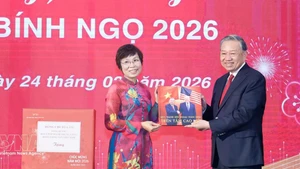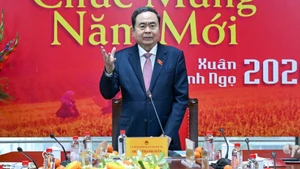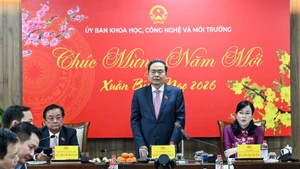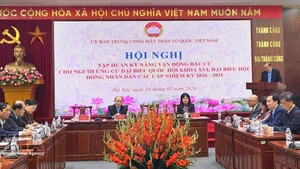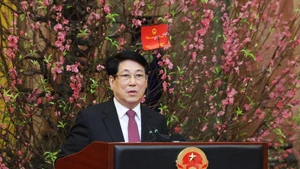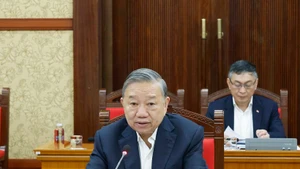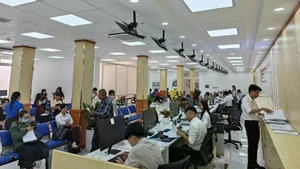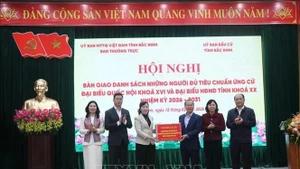National Assembly (NA) deputies continued the ongoing 10th session on November 5 by debating three bills, namely the Law on Tax Administration (revised), the Law on Personal Income Tax (revised), and the Law on Thrift Practice and Wastefulness Combat.
Deputies' opinions focused on refining mechanisms and policies on taxation and thrift practice in response to current economic developments.
Regarding the draft amended Law on Personal Income Tax, deputies agreed on the need for revision due to changes in prices, income levels and consumption patterns.
Deputy Nguyen Thanh Phuong of Can Tho city proposed calculating tax based on actual income after deducting essential living expenses.
Meanwhile, Deputy Hoang Van Cuong of Ha Noi city supported authorising the Government to flexibly adjust family deductions in line with inflation and income changes, provided adjustments reflect the higher end of these fluctuations.
He said the proposed reduction of tax brackets from seven to five would cause abrupt rate jumps and suggested maintaining seven brackets with 5% gaps and a top bracket of 150 million VND (5,698 USD) per month.
On household businesses, he argued that the 200 million VND revenue threshold is unfair and should instead be based on income, differentiated by business sector. For real estate transfers, he recommended exempting tax for individuals selling their only home to buy another, while applying higher rates to speculative trading.
Deputy Le Quan of Ha Noi proposed empowering the Government to adjust family deductions similarly to the base salary, expanding tax exemptions for overtime, night work and scholarships funded by individuals. He also recommended allowing deductions for professional expenses such as travel, conferences and work equipment, and for donations to education, research and healthcare institutions to encourage social contribution.
Some deputies, including Cuong, cautioned against the proposed 0.1% tax on gold bullion transactions, stressing the need to distinguish between speculation and ordinary saving. They suggested granting the Government authority to impose or lift the tax temporarily in response to abnormal market fluctuations.
Discussing the draft Law on Tax Administration (revised), deputies focused on tax management for household businesses.
Cuong noted that moving from lump-sum taxation to invoice-based declarations could be burdensome for those unaccustomed to bookkeeping. He suggested that with digitalisation, tax authorities should automatically calculate and notify payable taxes based on data from connected point-of-sale systems.
He also opposed requiring businesses to use intermediary service centres to issue e-invoices, saying the tax authorities could manage data directly to reduce costs. Deputy Pham Thi Thanh Mai emphasised that automatic tax refunds were a positive step from pre-audit to post-audit management, but detailed guidance would be essential to prevent fraud, especially in value-added tax refunds.
On the draft Law on Thrift Practice and Waste Combat, deputies agreed on the urgency to promulgate it, noting that the current relevant laws’ scope and enforcement remain limited. They proposed expanding its coverage beyond the public sector to include private organisations, PPP projects and communities.
Deputy Truong Thi Ngoc Anh of Can Tho city called for clearer provisions stressing that practising thrift is the responsibility of all citizens, not only state agencies. Deputies Ta Dinh Thi and Truong Xuan Cu of Ha Noi highlighted the need for efficient resource use, stricter sanctions against wastefulness, and measurable evaluation criteria.
Quan proposed material rewards for individuals and organisations with effective thrift and anti-wastefulness initiatives, similar to incentives for anti-corruption whistleblowers.
Many deputies emphasised the importance of applying science, technology and digital transformation as breakthrough tools to strengthen supervision, auditing and the efficient management of national resources.
